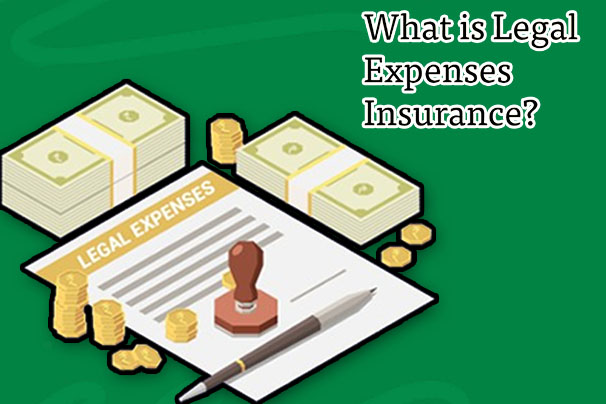It can be expensive and daunting to maneuver legal challenges, especially since the legal landscape today is quite complex. Legal expense insurance, also known as LEI, acts as a safety net for businesses and individuals experiencing legal disagreements or disputes by offering coverage for the associated costs of legal actions.

Moreover, the design of this type of insurance quote aims to alleviate the financial burden associated with legal proceedings, providing peace of mind and stress-free access to justice. To learn more about legal expense coverage, how it works, what it covers and doesn’t, who needs it, and how to get a policy, this comprehensive guide is for you, so keep reading.
What is Legal Expense Insurance?
Legal expense insurance is a form of insurance policy designed to cover associated costs of legal proceedings and services. It also assists individuals and businesses in handling the financial risks of legal disagreements by offering coverage for expenses like court costs, attorney fees, and other legal-related expenses. Additionally, businesses and individuals who are experiencing legal challenges will find this type of insurance (LEI) quite beneficial.
How Does It Work?
The concept behind LEI, also known as legal expense coverage, is simple to understand. This form of insurance operates by offering coverage for legal costs and fees related to specific types of legal problems or issues, depending on the terms of the policy.
Hence, as a policyholder, when you face a legal issue, you can file a claim with your insurance company. They will then evaluate the case and cover the qualified expenses as mentioned in your insurance quote.
What Does Legal Expense Insurance Cover?
Although what legal expense insurance (LEI) covers depends on your insurance company and policy, here is what this form of insurance quote typically covers:
- Legal advice.
- Attorney fees.
- Expert witness fees.
- Appeals.
- Legal representations.
- Court expenses.
What Does It Not Cover?
Although legal expense coverage usually covers legal dispute-associated expenses, there are some situations that LEI will not be responsible for. They include:
- Intentional acts.
- Criminal offenses.
- Self-harm claims.
- Personal injury.
- Divorce.
- Pre-existing legal problems.
- And business-related legal claims.
Who Needs a Legal Expense Insurance Policy?
You might find having an LEI policy beneficial if you want to protect yourself from the financial burden associated with legal disputes with consumer or landlord issues. Small businesses can also find legal expense coverage valuable when it comes to possible business-related legal dispute coverage. Moreover, if you want protection against legal disputes with tenants, you can consider LEI as a landlord. Additionally, freelancers and families can also consider getting a legal expense quote.
Thus, you should consider LEI if you are a:
- Contractor.
- Individual.
- Freelancers.
- Landlords.
- Small business owner.
- Families.
- Property owners.
How Much Does It Cost?
The average cost of a legal expense policy is from $150 to $500 per year for individuals. Therefore, the premium might be higher for businesses depending on the industry risk factors and size. Meanwhile, the cost of LEI also differs depending on various factors:
- Location
- Risk profile.
- Coverage type.
- Insurance company.
This is why it is important to compare quotes between different policies and companies for the best coverage for your needs.
How To Get Legal Expense Insurance
Here is a simple guide you can use to get a legal expense insurance or LEI policy from any insurance provider:
Search for reputable insurance companies that provide LEI policies.
- Compare quotes.
- Review and assess your needs.
- Request for policies.
- Carefully go through the terms and conditions of the policy.
- Select a policy.
- Fill out and submit your application with the insurance company.
- Provide the necessary documentation.
- Verify coverage.
After making your premium payment, your insurance policy will be active, and in the event of a legal dispute, you can file a claim with your insurance provider.
Frequently Asked Questions (FAQs)
How do I file a claim with my legal expense insurance provider?
If you would like to file a claim with your legal expense insurance company or provider, reach out to your insurer and provide the necessary details of the legal problem. Then, submit the important documentation as mentioned in the terms of your policy.
What types of legal issues are typically covered by legal expense insurance?
Usually, legal expense policy covers disputes or disagreements with consumer rights claims, employment issues, and landlords. On the other hand, the coverage also depends on the type of policy and the insurance company.
Is legal expense insurance worth it if I already have a general health or home insurance policy?
Certainly, legal expense coverage focuses on and covers legal costs and might offer coverage that is not mentioned in a standard home or health insurance quote.
Can I use legal expense insurance for criminal defense?
Sadly, legal expense coverage policyholders cannot use their policy for criminal defense coverage. LEI usually pays more attention to civil issues.
Are there any limitations to the coverage provided by legal expense insurance?
Yes, there are limitations to what coverage type is offered by LEI. Exclusions like specific forms of legal issues, pre-existing conditions, and certain high-risk claims are included.



